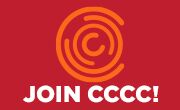Devon C. Fitzgerald, Millikin University
Though the practice of jailbreaking1, a process allowing users greater control and customization of tools like the iPhone, iPod Touch, and more recently Android phones and e-readers like the Nook, has been around since early 2007, it gained a great deal of momentum in 2009. The first jailbreaking methods, released in May 2007, were intended to provide users with a way to customize ringtones and play third-party games. Within months of each iPhone and iPod release, a jailbreak application is typically released.
In 2009, the Electronic Freedom Foundation filed a proposal with the Librarian of Congress and the Copyright Office for exceptions to the Digital Millenium Copyright Act (DMCA) which protects digital intellectual property like Apple’s operating systems and software, making anyone who circumvents the software in violation of the DMCA and subject to penalties under the law. So while there is some confusion regarding whether or not jailbreaking is “illegal,” it is clear that as of the writing of this report hackers and jailbreakers violate the DMCA. The EFF requested three exemptions to the DMCA: 1) an exemption for “amateur creators who use excerpts from DVD’s to create new, non-commercial works” 2) exemption for jailbreaking phones 3) a renewal of a previously granted exemption for unlocking handsets to be used in recycle and refurbishing programs (http://www.eff.org). Apple claims that jailbreaking violates copyright and does not warrant an exception. A ruling was expected in October 2009, then postponed to December and further postponed for early 2010. A decision is expected any day.
Why Jailbreak?
Currently, the only way to add iPhone applications is to buy Apple-approved apps from iTunes. Applications such as GoogleVoice, available on Blackberry and Android phones have been rejected by Apple, leaving the users who want to use such technologies to either go without or jailbreak their phones and knowingly violate copyright. The EFF has called Apple’s closed software policies anti-competitive.
Jailbreaking requires users to download a third-party program like Blackra1n and r3dsn0w in order to modify the iPhone’s bootloader, allowing users access to the directories and other areas of technologies that users have been previously been prevented from modifying. This means that users are able to move beyond the closed propriety software with which the device ships and install third-party applications and open software including games, ringtones, backgrounds and icons as well as other functions currently missing from the iPhone software such as the cut and paste functionality. In addition, the iPhone is currently only available to those who belong to or agree to join the AT&T network2. Jailbreaking makes it easier to “unlock” devices so they can be used on any cellular network.
Recently, users of the Barnes and Noble e-reader the Nook have been “rooting” their devices in order to install programs like web browsers and an RSS reader in addition to being able to customize and configure the menu screen. The process is complex and requires users to re-register their devices. And like all jailbreaking it voids the original warranty.
Even Google’s Android OS, which is open-source and highly customizable is not immune to jailbreaking, though it seems as equally risky as jailbreaking the iPhone without as significant a payoff. Jailbreaking an Android phone allows tethering (meaning users can hook the phone to their computers and use the phone’s wireless capabilities to get online through their computers), running a full LINUX system, downloading Android software directly from developers instead of filtered through a service provider. Because Android users are already able to significantly customize their phones through wallpaper backgrounds, font choices free applications, screen unlock patterns, passwords and which icons appear on the opening screen. Thus, the desire for root directory access is less significant and less popular.
Is Jailbreaking illegal?
In brief, yes and no. While not explicitly illegal, jailbreaking one’s phone is a violation of the Digital Millenium Copyright Act (DMCA), which protects digital intellectual property like Apple’s operating systems and proprietary software. Thus, anyone who circumvents the software in violation of the DMCA and subject to penalties under the law. So while there is some confusion regarding whether or not jailbreaking is “illegal,” it is clear that as of the writing of this report hackers and jailbreakers violate the DMCA.
In 2009 Electronic Frontier Foundation filed a proposal with the Librarian of Congress and the Copyright Office for exceptions to the Digital Millenium Copyright Act. The EFF requested three exemptions to the DMCA: 1) an exemption for “amateur creators who use excerpts from DVD’s to create new, non-commercial works” 2) exemption for jailbreaking phones 3) a renewal of a previously granted exemption for unlocking handsets to be used in recycle and refurbishing programs (http://www.eff.org). Apple claims that jailbreaking violates copyright and does not warrant an exception. A ruling was expected in October 2009, then postponed to December and further postponed for early 2010. A decision is anticipated any day.
Implications for Rhetoric and Composition
The Copyright Office’s ruling could certainly impact the field of rhetoric and composition, particularly if it rules in favor of protecting closed, proprietary software which could potentially limit innovations and advancements in software technologies as well as limit user control and input. In the future this might have implications for the capabilities and choices of educational software and technologies.
Perhaps most significantly, the practice of jailbreaking itself points to a growing trend among technology users for control and customization options .There are customizable features on almost any technological tool one uses today and there has been for some time. Users can have a custom-made computer by choosing the hardware, software and in some cases, colors of their laptops. There are customizable templates for websites, blogs, content management systems like Drupal and Moodle and social media sites like Twitter. Today’s users want what is popular but they want to exert their ownership of it in some way; they want to personalize technology so that it works specifically for them and for their lifestyles but also to represent their identities. It is not surprising, then, that many users want to exert control over the technologies they use most. . As colleges move more content and courses online and seek ways to stay competitive in the marketplace, these user trends will find their ways into our classrooms and curriculum.
Work Cited
Electronic Frontier Foundation. 2009 DMCA Rulemaking. Web. 15 Feb. 2010.
Gohring, Nancy. “Report: DOJ Reviewing US Telecom Deals with Handset Makers.” PC World 6 July 2009. Web. 20 Feb. 2010.
*****
1 The term “jailbreak” originates from the UNIX command “chroot” which alters a computer’s operating directory and prevents the user from leaving that directory, commonly referred to as “chroot jail.”
2 The US Department of Justice has reportedly begun investigating how mobile service carriers function under exclusivity deals with makers of handsets, a move that could alter and even prevent agreements like the Apple/AT&T deal.












